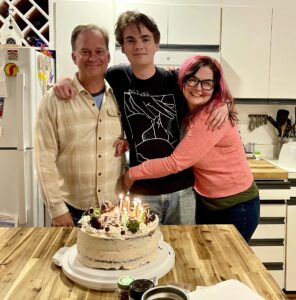 I am painting and collaging again and taking pictures of things I want to paint like the gorgeous trees around my neighborhood.
I am painting and collaging again and taking pictures of things I want to paint like the gorgeous trees around my neighborhood.
Here is an excerpt of a chapter that I wrote and found humorous. Enjoy.
Father Knows Best
Richard Wells drives on autopilot, how he would on his way home from the office, his mind blank, west on 29, through Centreville and Gainesville, then south on Route 15’s curvy, mountainous road, south on 33 to Route 6, past the cinderblock market where a Coca-Cola sign, bleached white, hangs from rusted hinges.
Richard takes a left at the AG and pulls onto the side of the road, the stray cats gathering around his Land Rover. Deb made it clear as crystal that if he didn’t stay away, she would tell his wife and kids about the affair and about Lola. Irritated, he blows his horn.
What in god’s name is he doing here in Rock Gap? He hasn’t thought his actions through. He hasn’t thought, period, doesn’t feel that he can think—that he has freewill. He is rolling up his window and driving to the trailer, pulling up beside Deb’s old Chrysler and cutting the engine. His daughter lives in poverty. He’s sent cash to Deb but can’t risk writing a check. His wife keeps tabs on their finances. His middle daughter is in graduate school. Before he can think what to say or drive away, Deb is coming through the trailer door, hands in the air. “What the fuck are you doing here?” A dozen cats disperse from between her feet.
Richard is confused. He rolls the window down. “I don’t know.” He sighs and knocks his forehead against the steering wheel. “I have no clue what I’m doing here.”
“Then, get. Go away!”
But he’s here. He checks his watch. He’s missing two meetings. “Is she here?” he asks.
“Yeah, but you can’t see her.”
“Your hair is green.”
“Shut up.”
“Does she remember me?” He rests his head on his arms. “When the trailer’s a rockin’, don’t come a knockin’? Remember?”
“What are you doing here? Seriously? Are you having a midlife crisis nervous breakdown thing?”
“Seriously, I have no idea. I was on my way to a meeting, and then I was almost here. It was the weirdest thing.”
“Yeah. Sounds like it. We’ve discussed this. You need to leave.” She turns and returns to the trailer.
Richard has missed the first meeting, and he’s not going to make the second. He needs to at least call someone, and he heard about a guy who got scabies from a payphone, so he’s not doing that. He gets out of his car and goes to the trailer. He wonders if Deb’s room looks the same. Is the mattress the same? She was a gorgeous thing with a tight ass and legs for days. Who meets a woman in a roadside park and hooks up? He did: Richard Wells. It was the best pussy of his life.
He knocks on the trailer door and it opens. He steps inside. “Deb?” He heads down the hallway to her bedroom. A couple of cats block his path but he nudges them out of the way with his foot. “Deb?” he says again, opening her bedroom door. She’s reading a book like when he first met her. She was reading Camus. So mysterious—a girl in a bikini reading Camus on a hot summer day.
“Get out.”
“What are you reading?”
“Get out.”
“Don’t be like that. I drove all this way.”
She’s on her feet now, hands at her waist. She’s like a little child. Is she going to throw a tantrum? He would’ve figured a way to get her and Lola out of this dump. He loves Lola. She was six-years-old the last time he saw her in person. She’s probably changed a lot. Teenagers are miserable creatures. Barely human.
“I’ll call the police,” Deb says.
“Can I just use your phone? I need to make a couple of calls.”
“The phone’s in the kitchen.”
“I could use your phone.”
“You can’t.”
He walks toward the kitchen and she follows. It seems a shame to have driven all this way and get nothing out of it. “Is Lola here? Can I talk to her?”
“She doesn’t want to talk to you.”
“You don’t know,” he says.
“Well, she’s not here,” Deb says.
“I hope to reconnect with her one day,” he says. “She was a pretty little girl.”
“Make your call and go.”
“You still have the cats?”
Deb leans with her back against the countertop. Her face is almost gruesome in the fluorescent lighting.
Richard picks up the phone. “It’s long distance. Sorry.”
Deb sits on the couch as he dials. She lights a cigarette and a cat purrs, rubbing its nose against her arm.
His phone call is quick. He just had to explain his absence. “No car accident. I came to see my hot ex-mistress.” He laughs. The man on the other end of the line laughs. “Oh yeah,” he says. “You know it.”
As he leaves, he hands Deb a five-dollar bill. Being ungrateful, she tries to give it back to him. “For the phone call,” he says. She can buy a small pizza or five of those Totino’s pizzas. “Tell Lola I stopped by. Maybe I’ll come back. My kids are all grown now.”
“Don’t do that.” She watches him get in the car.
“You look good.” He wants to make her feel good. She doesn’t look great. She looks like she needs a spa day. She looks haggard.
“Whatever,” she says.
“We have a kid,” he reminds her.
“Please leave.”
“Tell Lola I was here.”
“Maybe.”
He’s leaning out the window again. “Do you still have the office number?”
“Unfortunately.”
“Tell Lola to call me. I’ll come back. I haven’t seen her in ten years.”
“We’ll see.”
“Don’t keep me from my daughter or her from me because you’ve got beef with me.”
“We’ll see,” Deb says, returning to the trailer, the cats on her heels.
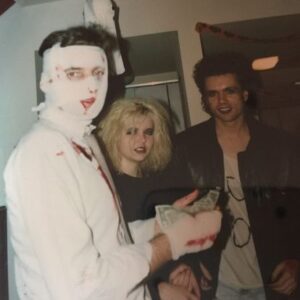

 I am painting and collaging again and taking pictures of things I want to paint like the gorgeous trees around my neighborhood.
I am painting and collaging again and taking pictures of things I want to paint like the gorgeous trees around my neighborhood.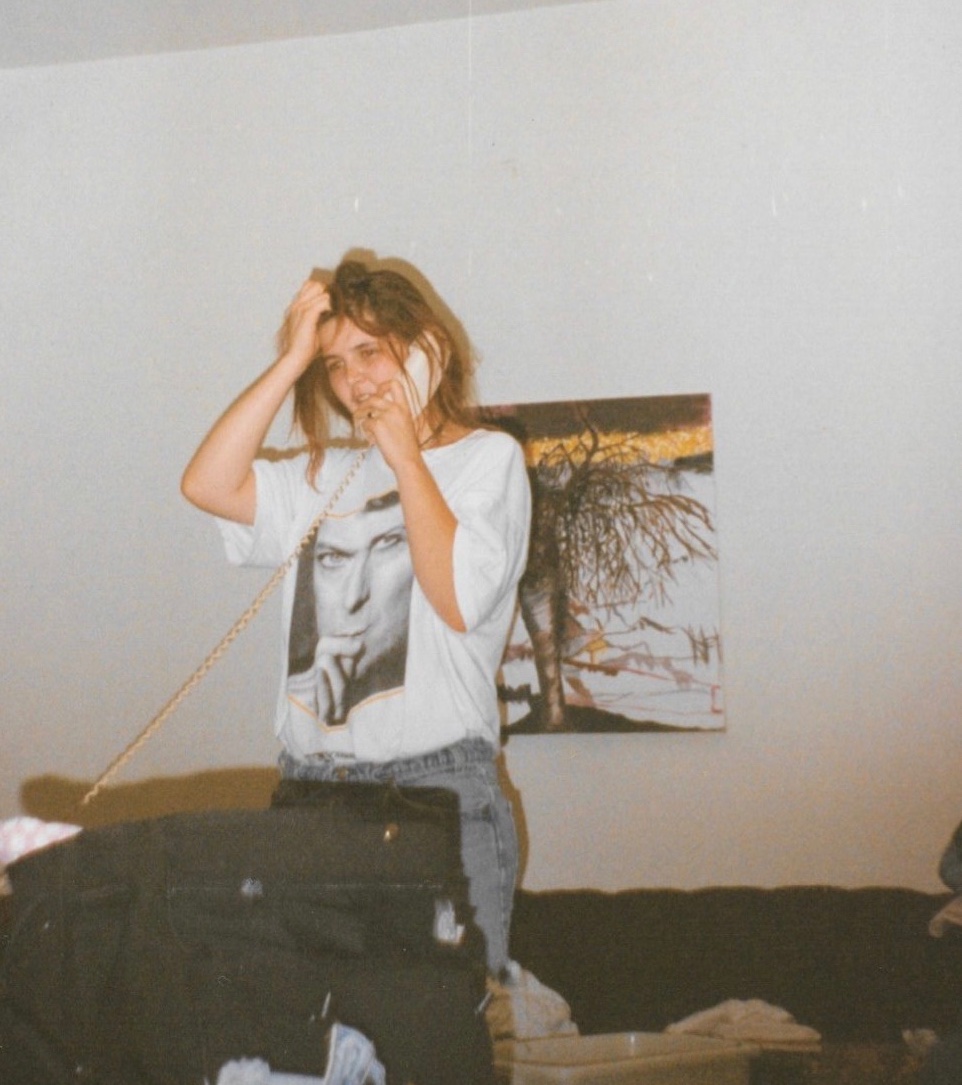
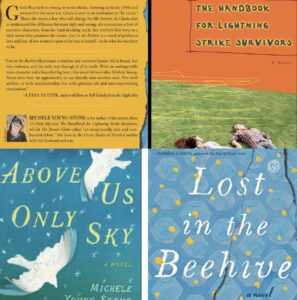
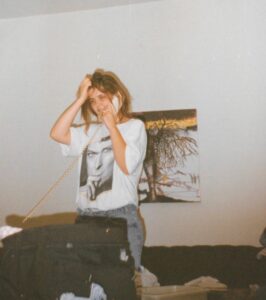
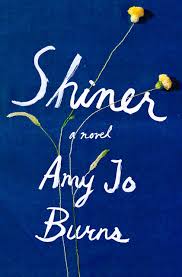
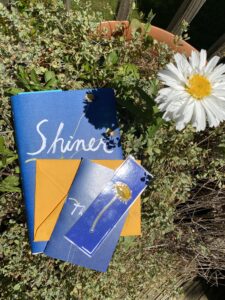
 person–to return to.
person–to return to.